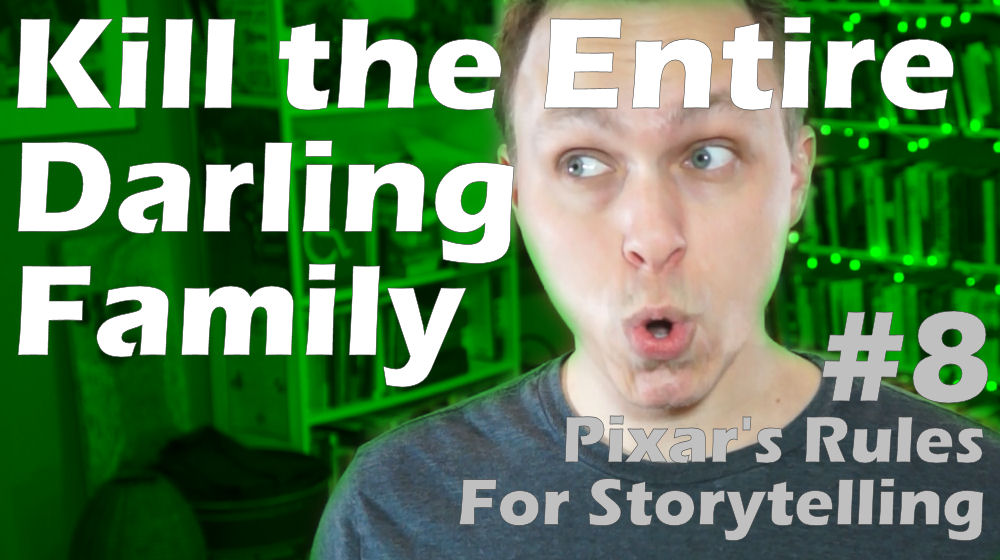A Brand New Video Game Magazine?
Welcome to Burning Books. I’m Caleb, and I want to help you love video games even more. Sometimes I do that by reviewing books about video games. Today is one of those sometimes, because I’m taking a look at the first issue of A Profound Waste of Time.
I’m not often this excited to share something with you lovely viewers. Not that my enthusiasm is normally false, but come on, everyone talks about video games. But, new video game magazines are rare and rarer still are people who talk about new video game magazines. So forgive me if I squeal too much. I’m super excited to talk about A Profound Waste of Time, Issue #1.
This is the kind of thing I love. I cut my teeth in literary journals like Flint Hills Review, Black Clock, and Pear Noir! These journals aim to give the intentional-thought treatment to books and short stories. These journals dive deep into both individual stories and grand movements alike. A Profound Waste of Time does the same for video games. At least it aims to. This is only issue 1, remember. It could be all downhill from here. But I sense big things with A Profound Waste of Time.
Imagine a printed and bound version of YouTube channels like OK Beast, No Clip, and even, to some degree, Gaming Historian. Or if Boss Fight Books created a beautiful collection of essays (another collection, I suppose, as they have released an anthology). That’s a Profound Waste of Time. And it’s amazing.
The first thing you’ll notice is it’s presentation. It’s thicker and more durable than a traditional magazine and larger than most books.
A flip through the pages reveals not only an amazing book smell, but beautiful visuals. Each page is composed with obvious care, taking into account not just the visuals for visuals sake, but also how those visuals compliment the text. I’d frame and hang every single page of this volume if it meant I wouldn’t have to destroy the book.
But what about the text? After All, the words are what matters the most. Happily, these essays are almost universally great.
The volume opens with a seemingly irrelevant story about a group of people building a spaceship playset. Think a rocket ship made of Lego bricks. As the production advances, unforeseen issues come up causing problems with the project’s budget, its expected timeline, and even the playset pieces themselves. What we learn by the end of this story is that we’ve been presented an analogy for video game development–with budgets and timelines controlling the length of the creative leash–and it’s a perfect setup for what the rest of the volume holds.
For example, the piece titled Licensed Game Life Adam Tierney answers the question, “why are licensed games often bad?” The short answer is because they have to be timed to release alongside something else, like a movie or toy series. Licensed game developers usually don’t have the luxury of pushing back timelines to fix every bug. There, I answered the question in just a couple sentences. So why do we need an entire essay? Because the essay spends time, from the developer perspective, digging into how licensed games aren’t always bad, that most gamers have a misconception about what licensed games are, and how creating licensed content can actually make developers better at making games.
Susan Arendt’s piece Age demands to be a longer, dare I say book-length, exploration. Here Arendt observes how the ages of players and protagonists adds complexity to a story in a video game. Video games are uniquely ripe for discussions of transitioning generations. Never before has a once-niche industry grown so massively, spread so consistently, and been accepted by multiple generations so quickly. Maybe not since television itself. Though, TV was never a kid’s toy before becoming a universal medium, so maybe even that comparison fails. Video games truly are unique. If no book-length exploration comes now, this topic of generational appreciation of video games will lose the impact allowed by present circumstances. Susan Arendt, if you are watching/reading this, think about it.
How to Smash Plates and Speak Video Games by Rami Ismail is a standout piece about the language of video games as a proxy for understanding cultural difference.
A Swimmer’s View of Abzu by Hannah Nicklin is, as the title suggests, an essay about Abzu from the perspective of life-long, competitive swimmers. We learn how well Abzu actually captures the feeling of swimming. I’m hoping this type of piece–a professional’s view of how her profession is depicted in video games–becomes a staple in future issues. There are plenty of racing games for racecar drivers, cooking games for chefs, and even even Super Mario Bros. for plumbers.
The only lesser parts are when the magazine limits itself to personal retrospective. A Yoshi Story by Andy McDonald, which is about the game Yoshi’s Story on the N64, isn’t the in-depth editorial piece that the rest of the magazine nails. It’s really just a personal reflection on the game. This wouldn’t be bad in other contexts, but the rest of A Profound Waste of Time promises more.
I come from the world of literature, of critical analysis, and often that form finds its best home in literary journals, which are bound collections of reviews, stories, essays, and more. Think magazines, but more book shaped and less advertising. That’s what A Profound Waste of Time feels like with this first issue. A literary journal but inspired by video games. I LOVE IT.
If you like deep explorations of games, then A Profound Waste of Time is probably for you. Check out my other video game book reviews on this channel–link to a playlist in the description below–to get an understanding of the types of books I like. If those reviews resonate with you, then you can trust my opinion that A Profound Waste of Time is very much not a waste of time…you knew I was going to say something like that at some point in this review, didn’t you?
Mentioned
- My playlist full of video game book reviews
- A Profound Waste of Time
- Flint Hills Review
- Boss Fight Books anthology
Music Credits
8bit Dungeon Level Kevin MacLeod (incompetech.com), Licensed under Creative Commons: By Attribution 3.0 License, http://creativecommons.org/licenses/by/3.0/


